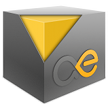The new maemo.org community council has been installed...
sudo apt-get install council-2011.1
...and we've spent some time discussing what we want to prioritize and accomplish this term.
Now that Nokia has put Maemo into "maintenance mode", with no promises of future updates, we would like to see Maemo continue forward as a community project. And we believe there are two projects that are very promising for the future of Maemo as a community-supported project.
 The PR 1.3 release of Maemo was the the last official release from Nokia. But many developers in the community felt we could keep moving forward, fixing bugs and introducing new functionality. "It aims to deliver fixes which would be difficult to deliver through Extras (like core Maemo packages). It won't, however, bundle software which can be installed through the Extras repositories."
The PR 1.3 release of Maemo was the the last official release from Nokia. But many developers in the community felt we could keep moving forward, fixing bugs and introducing new functionality. "It aims to deliver fixes which would be difficult to deliver through Extras (like core Maemo packages). It won't, however, bundle software which can be installed through the Extras repositories."
The council wants to see all Maemo devices supported in the future. That's why we're also encouraging the CSSU for older "Diablo" devices such as the N800 and N810, as well.
The council believes these Maemo OS update projects are the best way to keep Maemo fresh and vital, long after they have stopped receiving official support.
 The aim of the Cordia project is to get the Maemo 5 UI running on the MeeGo infrastructure. This is important because the Maemo infrastructure has been frozen, and it is ageing gracefully into obsolescence. The MeeGo infrastructure, on the other hand, is using current versions of all the components, and, because it is supported by several large sponsors, it will probably stay current for the next while. The Cordia project gives us hope that the Maemo UI will survive on a new, maintained system.
The aim of the Cordia project is to get the Maemo 5 UI running on the MeeGo infrastructure. This is important because the Maemo infrastructure has been frozen, and it is ageing gracefully into obsolescence. The MeeGo infrastructure, on the other hand, is using current versions of all the components, and, because it is supported by several large sponsors, it will probably stay current for the next while. The Cordia project gives us hope that the Maemo UI will survive on a new, maintained system.
Coding Competition
The council would also like to draw your attention to the community-run coding competition. There are prizes and some associated events; see the wiki page for more information.
Other Issues
There are three other issues we should mention:
First, the previous council did some more research and digging, and it is now certain that there will be no official Adobe Flash updates for Maemo. The main problem, as we thought, is performance. Adobe has not optimized / hardware accelerated the Flash player enough, and the N900 just isn't powerful enough to run it without acceleration.
Secondly, despite some enquiries to Nokia by the previous council, there has been no movement from Nokia on the closed components discussed in the wiki.
Finally, we are also discussing possibilities for continuation of the maemo.org community if Nokia were to stop supporting us. It looks like there's not much to worry about in 2011, and it has been made clear to us that even if things change in 2012, we'll have 6 months to react, but we're thinking ahead anyway. We'll try to take this discussion public in the near future.


 The
The 
 The PR 1.3 release of Maemo was the the last official release from Nokia. But many developers in the community felt we could keep moving forward, fixing bugs and introducing new functionality. "It aims to deliver fixes which would be difficult to deliver through Extras (like core Maemo packages). It won't, however, bundle software which can be installed through the Extras repositories."
The PR 1.3 release of Maemo was the the last official release from Nokia. But many developers in the community felt we could keep moving forward, fixing bugs and introducing new functionality. "It aims to deliver fixes which would be difficult to deliver through Extras (like core Maemo packages). It won't, however, bundle software which can be installed through the Extras repositories."  The aim of the Cordia project is to get the Maemo 5 UI running on the MeeGo infrastructure. This is important because the Maemo infrastructure has been frozen, and it is ageing gracefully into obsolescence. The MeeGo infrastructure, on the other hand, is using current versions of all the components, and, because it is supported by several large sponsors, it will probably stay current for the next while. The Cordia project gives us hope that the Maemo UI will survive on a new, maintained system.
The aim of the Cordia project is to get the Maemo 5 UI running on the MeeGo infrastructure. This is important because the Maemo infrastructure has been frozen, and it is ageing gracefully into obsolescence. The MeeGo infrastructure, on the other hand, is using current versions of all the components, and, because it is supported by several large sponsors, it will probably stay current for the next while. The Cordia project gives us hope that the Maemo UI will survive on a new, maintained system.








.gif)




